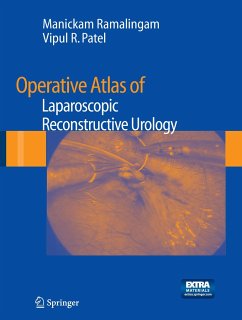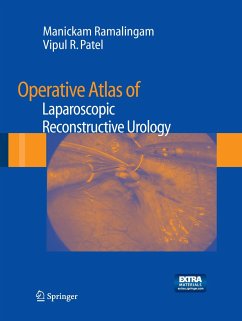
Laparoscopic Urologic Oncology

PAYBACK Punkte
42 °P sammeln!
Minimally invasive urologic surgery is revolutionizing how physicians treat many urologic diseases. Laparoscopy in particular has reduced the pain, morbidity, and recovery time for many procedures traditionally per formed through an open incision. Since laparoscopy is now the preferred modality for many benign conditions, the indications have expanded with the technique, so that it is now applied to the management of most urologic cancers. The aim of Laparoscopic U rolo g ic Oncology is to provide the first com prehensive textbook dedicated to the minimally invasive management of urologic canc...
Minimally invasive urologic surgery is revolutionizing how physicians treat many urologic diseases. Laparoscopy in particular has reduced the pain, morbidity, and recovery time for many procedures traditionally per formed through an open incision. Since laparoscopy is now the preferred modality for many benign conditions, the indications have expanded with the technique, so that it is now applied to the management of most urologic cancers. The aim of Laparoscopic U rolo g ic Oncology is to provide the first com prehensive textbook dedicated to the minimally invasive management of urologic cancers. The book is not intended to review the biology of urologic tumors, which is well covered in other texts, but rather their management. In particular, it focuses on surgical technique and the role of laparoscopic surgery in the management of these tumors. It also addresses patient con ditions for which a minimally invasive alternative does not exist. The book is not a surgical atlas, but it does provide a balanced insight into its indica tions, contraindications, and results. Furthermore, the authors compare results to conventional open surgery, discuss controversies, and identify the shortcomings of minimally invasive procedures. In particular, such issues as the adequacy of oncologic results and their morbidity are com pared to those experienced with conventional open techniques. Laparoscopic Urologic Oncology focuses on educating both general urologists and urologic oncologists on the current and future role of laparoscopy and other minimally invasive techniques in urologic oncology.














